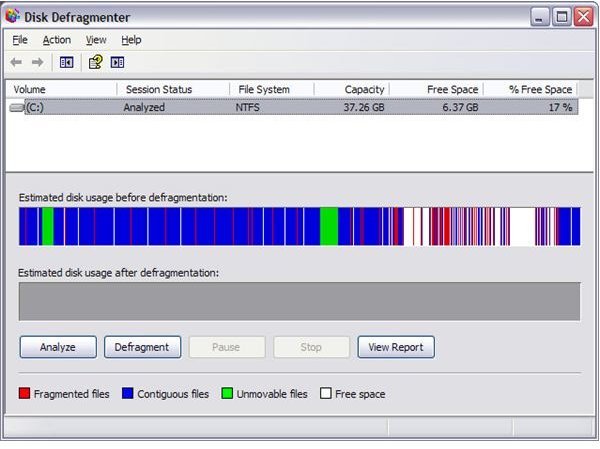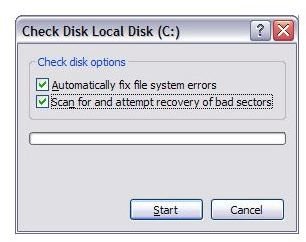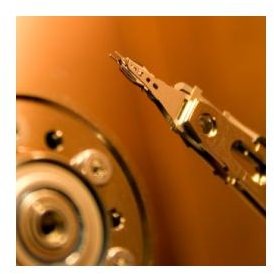How to Detect Hard Disk Failure Before It Happens - Types of Crashes and Noises
Hard Drive Failure
Dealing with a crashed hard drive can be a heartbreaking experience. Unless you were making regular backups of your data, chances are you lost something in the process. Even if you have all your data backed up, you will still have to deal with the time-consuming process of replacing the drive, reinstalling software, restoring data, and more.
Sometimes a hard drive crash will take us by surprise and there is nothing you could have done to prevent it. I’ve seen hard drives die in brand new machines. However, there are often plenty of warning signs that your hard drive may be on its way out. In this article, I’ll discuss what you can do in order to catch a hard disk failure before it happens.
Type of Hard Drive Failure
Hard drive crashes are attributed to two main factors – file corruption or mechanical failure. File corruption is mainly a software-related problem in which the data on the hard drive is somehow corrupted so that it is no longer readable by the operating system. This can result in lost data or inoperable software. A heavily fragmented hard drive can lead to greater instances of file corruption. Improper system shutdowns can also corrupt data.
Mechanical failure is when the hard drive suffers from a physical problem that hinders its ability to function. It could be caused by the motors inside failing, or even from dropping the hard drive and causing some kind of physical damage. Excessive amounts of heat can also cause the internal components of a hard disk to wear down prematurely.
The main difference between file corruption and mechanical failure is that you can take measures to prevent and repair file corruption, but you usually can’t fix a mechanical failure.
Listen to Your Hard Drive
Hard drives generally make a type of grinding noise as they work. Some drives are very noisy and some are very quiet, and it all differs from brand to brand. Because the hard drive has moving parts inside, such as the motors that spin the disc and move the read/write head, you will sometimes be able to listen to those motors and tell if there is a problem.
One definite sign that your hard drive is going to die is called the click of death. If you hear a steady click or ticking sound coming from the drive, then it’s about to fail. Another thing to listen for is an excessive amount of noise. If it sounds like the hard drive never seems to rest, it could indicate a problem. It could also mean you need to defragment.
Basically, any abnormal sounds coming from your hard drive need to be considered a warning sign that the drive may be mechanically failing. If you hear anything suspicious, you should run CHKDSK and defragment the drive.
Defragment

The defragmenter is good for keeping your files organized in a way that allows for the most efficient reading of the data. It works by taking all the bits and pieces (fragments) of your files and stores them sequentially on the hard drive. This helps to cut down on file corruption and can speed up your computer’s performance because the hard drive won’t have to work so hard to load fragmented files. If the defrag fails to complete or has problems reading files, then you should run a full error checking scan in and take note of the results.
To run the hard drive error scanning utility in Windows XP or Vista, go to My Computer and right-click on your hard drive (typically C:) and then click on Properties. In the window that pops up, click on the Tools tab and then click the Defragment Now button. You can also find it in the Start Menu under Programs – Accessories – System Tools.
I also recommend PerfectDisk 10 for a more thorough defragmentation software, but you’ll have to purchase it separately.
Use CHKDSK for Error Checking

Regularly running CHKDSK is a great way of testing your hard drive and keeping it in good working order. This built-in Windows utility can help to repair some problems with file integrity as well as recover lost data. It can also perform a surface scan of your hard drive where it reads the entire drive from start to end and tests for any problems. It may find issues when you haven’t even noticed any problems with the drive. For example, if the drive shows bad sectors, it is recommended to replace the drive.
To run the hard drive error scanning utility in Windows XP or Vista, go to My Computer and right-click on your hard drive (typically C:) and then click on Properties. In the window that pops up, click on the Tools tab and then click the Check Now button. If you do a full scan, it will make you wait until the next time you start up the PC, so you should go ahead and reboot to let it run.
Hard Drives Do Wear Out
Because hard drives are mechanical devices, they will wear down over time. How long a drive will last is dependent upon the amount of use it gets and how lucky you are. It’s sort of like owning a car in that sometimes they last for years and have almost no trouble while others break down after a short while. There will eventually come a time where you might want to consider buying a new hard drive when the old one is so slow that it hinders use. Some people consider this time to get a whole new PC. You can also use a program like Norton Ghost to copy your old hard drive to the new one.
At my work, we have some computers that are in locations where someone is using them nearly every hour of every day. I recently replaced a machine that was only three years old, but it had been used so much that it had literally worn out. Just opening Add/Remove Programs took nearly ten minutes to show the full program list, and installing anything took longer than it did on other machines. Despite all those issues, the hard drive itself passed every CHKDSK scan I ran on it and would defragment without any problems, other than it taking many hours to complete. There was nothing wrong with the hard drive other than it being worn out from heavy use.
